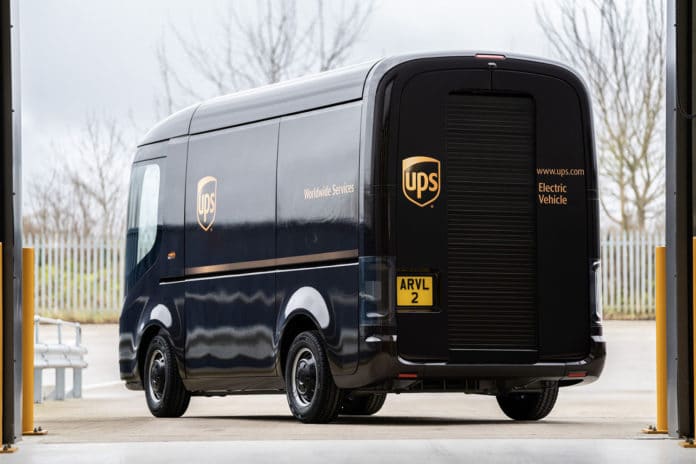The global parcel delivery company UPS has invested in a British startup, Arrival, created by former Yota CEO and former Deputy Communications Minister Denis Sverdlov. Along with the investment in Arrival, UPS also places a large order for electric delivery vans there. The amount of the contract was not disclosed yet.
Arrival is a startup founded in 2015 with its headquarters in London, which, with around 800 employees, develops a production platform for small and medium-sized electric delivery vans, among other things. The US logistic giant wants to benefit from this. The company announced a commitment to purchase 10,000 e-delivery vans to be built, especially for UPS, with priority access to purchase additional electric vehicles.
UPS will collaborate with Arrival to develop a wide range of electric vehicles with Advanced Driver-Assistance Systems (ADAS). “UPS continues to build an integrated fleet of electric vehicles, combined with innovative, large-scale fleet charging technology,” said Juan Perez, UPS chief information and engineering officer.
Arrival electric cars are based on a narrow platform with an electric drive. They can then be custom made in different sizes and with different requirements according to UPS requirements. They should also be able to be manufactured in smaller factories at different locations.
To date, UPS has various brands in its fleet of 120,000 vehicles, including Mercedes and Ford. UPS is also converting its old diesel transporters in Germany from EFA-S to electric vehicles. UPS and Arrival have been developing corresponding concepts of different vehicle sizes, together since 2016.
The US parcel service is not the only partner of Arrival. In mid-January, the South Korean car company Hyundai announced a deal with it. The sister brands Hyundai and Kia are investing 100 million euros in the startup, and they too want to use its platform.
Arrival wants to build a futuristic-looking electric delivery van with a range of around 300 kilometers per battery charge. Currently, the plan is to produce up to 10,000 vehicles a year.
